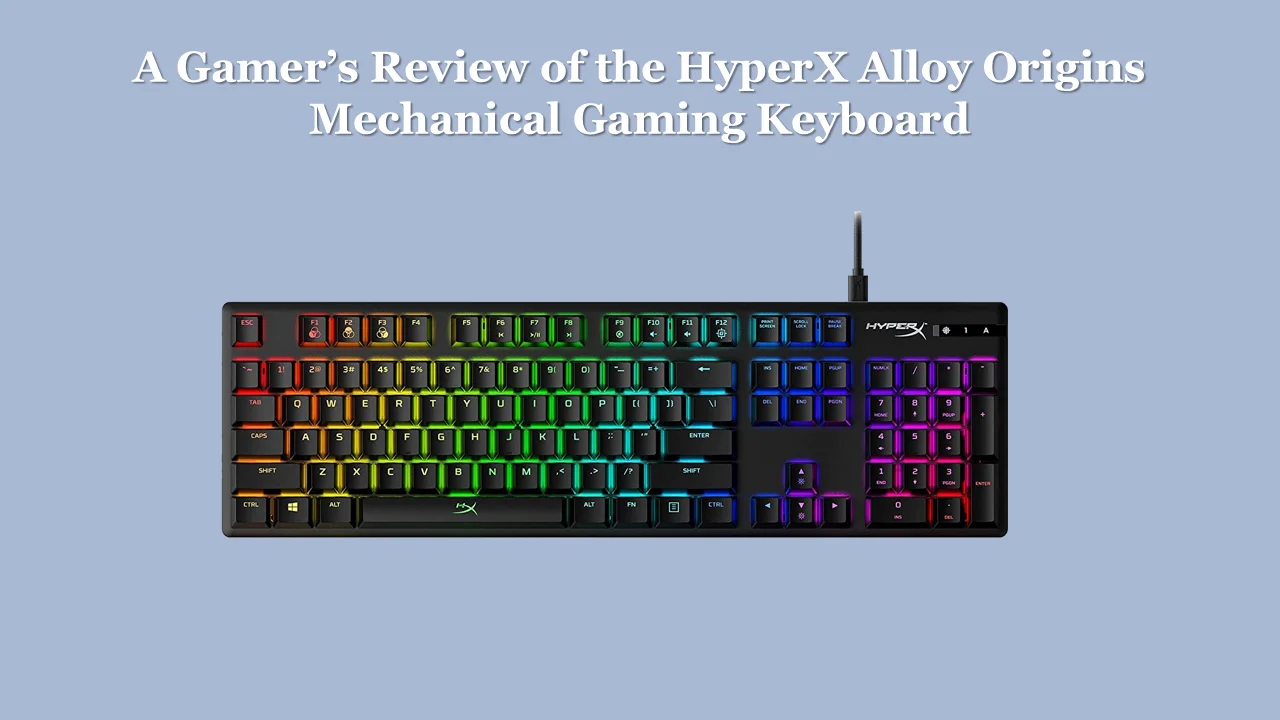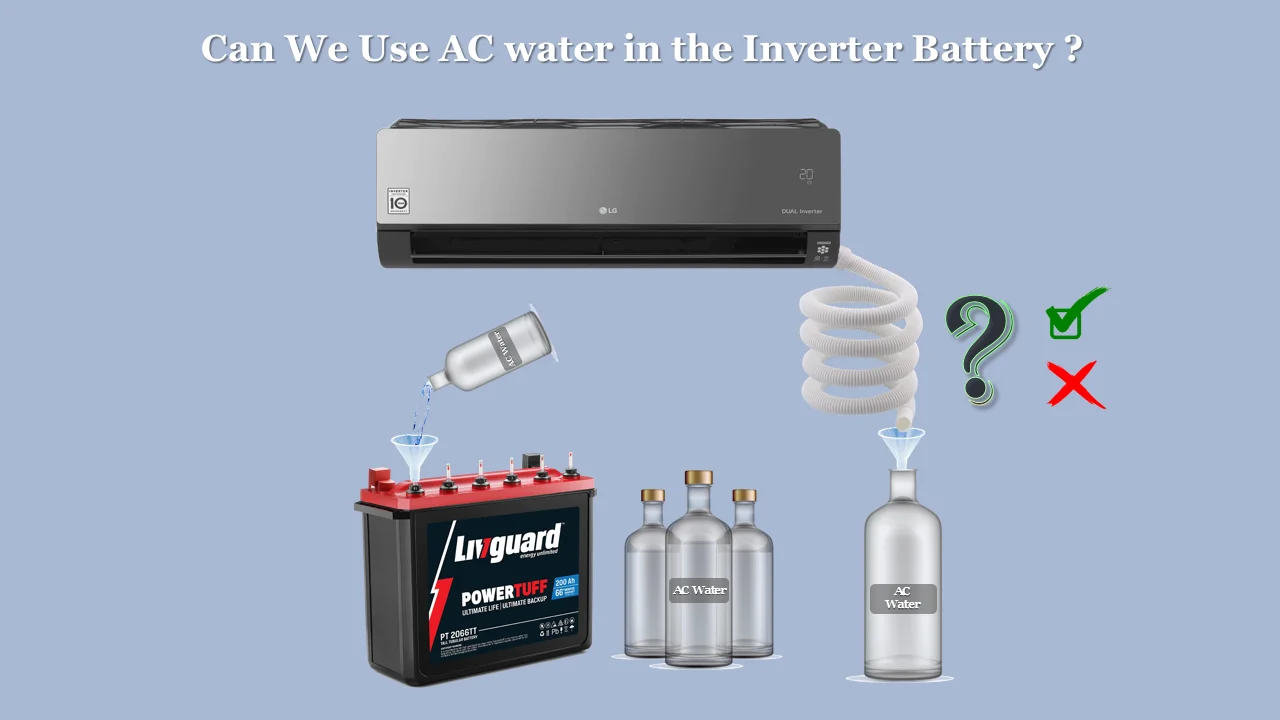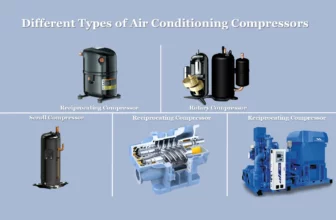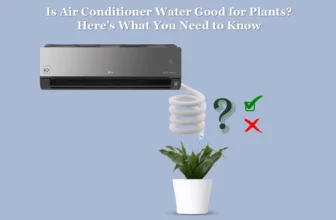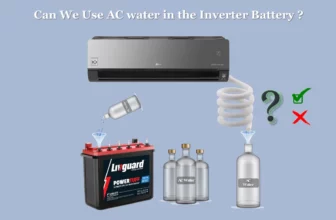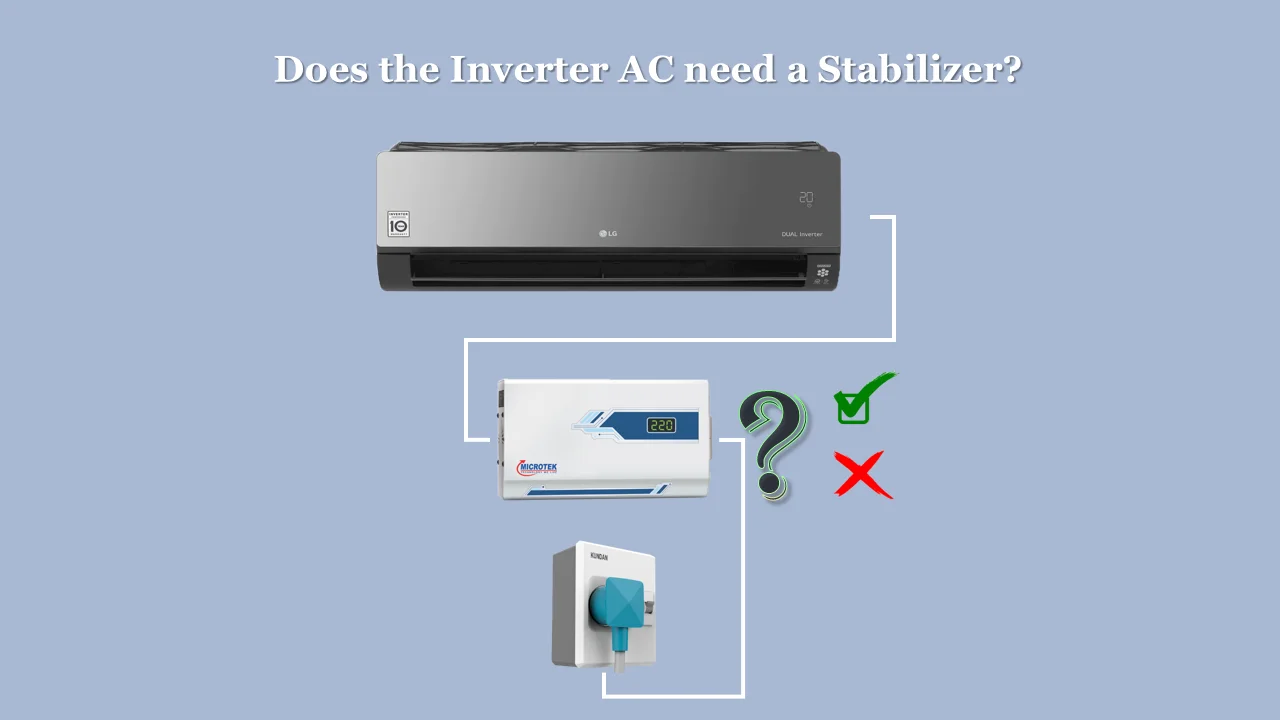
An inverter AC is an excellent choice for your home or office. Not only does it save energy and money, but it also provides many other benefits that you will love. But does the inverter AC need a stabilizer?
The short answer to the question “Does Inverter AC need Stabilizer?” is very simple. Yes, you should use a voltage stabilizer with your inverter Air conditioner, especially if you live in an area with a lot of power fluctuations. A voltage stabilizer is needed even if your AC comes with “Stabilizer free operation” or has “an inbuilt stabilizer” because these operations do not ensure 100% safety.
The above question first came to my mind when my friend’s inverter AC compressor with its PCB was damaged due to a sudden power surge in his area. It was a brand new inverter Air conditioner with an inbuilt stabilizer labeled as stabilizer-free operation.
On the other hand, his old air conditioner with a voltage stabilizer was safe in his next room, and no damage was done to any of its parts or PCB.
This made me uncomfortable, and I wondered whether it was a problem with the AC unit or the external stabilizer that saved the older Aircon. I did a bit of research on the internet, consulted my electrical and electronic engineering friends, and thought of sharing the same in this post.
- What is an Inverter AC and How does it work
- The Benefits of using an Inverter AC
- Does Inverter AC need Stabilizer?
- How Does a Voltage Stabilizer Work?
- Benefits of a Voltage Stabilizer For AC
- Can We Connect AC Without A Stabilizer?
- In what cases a voltage stabilizer may not be required for Inverter AC?
- How Much kVA Voltage Stabilizers Are Required for Inverter AC?
- Does the Inverter AC have an inbuilt stabilizer?
- Does Dual Inverter AC need a Stabilizer?
- Is it safe to use an AC without a voltage stabilizer?
- How to Choose the Right stabilizer for your Inverter AC
- Best Stabilizer for Inverter AC
- Frequently Asked Questions
- Final Verdict
Before we dive deep into the topic, let’s first learn a little bit about Inverter AC, it’s working, and benefits.
What is an Inverter AC and How does it work
Inverter air conditioners have become increasingly popular in recent years thanks to their energy efficiency and quiet operation. Conventional ACs use a single-speed compressor that turns on and off as needed to maintain the desired temperature.
Inverter ACs are those air conditioners that use a variable-speed compressor.
Inverter ACs are those air conditioners that use a variable-speed compressor and can ramp up or down as needed. It uses inverter technology to regulate the speed of the compressor.
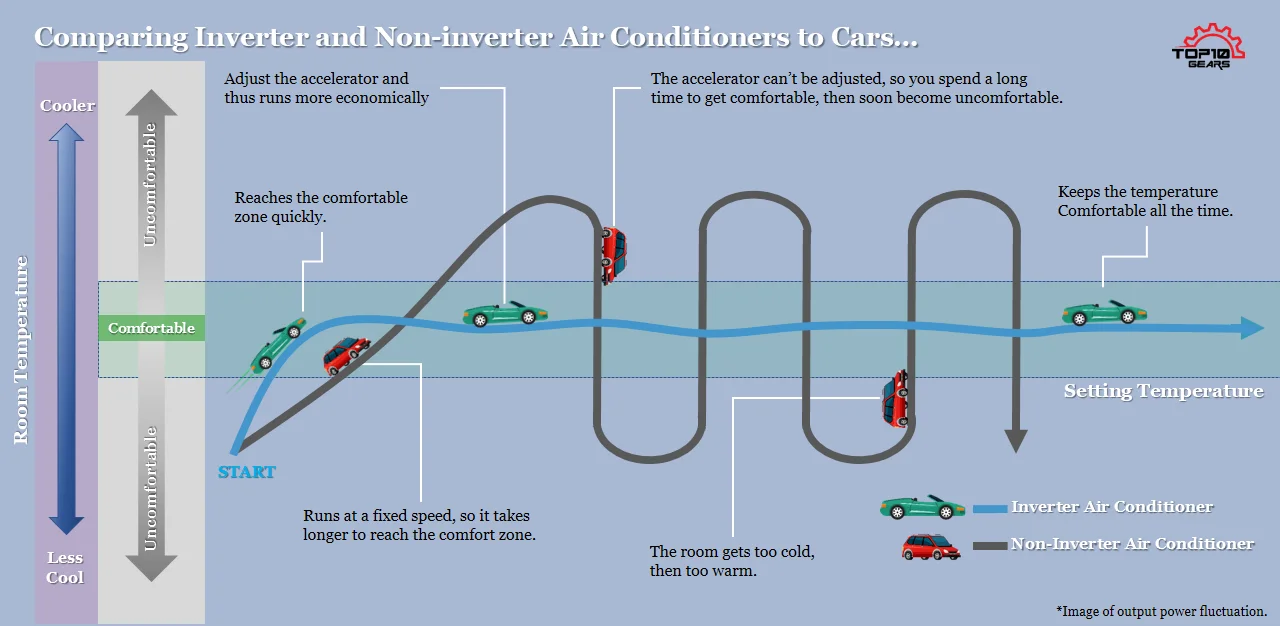
This results in a number of benefits, including improved energy efficiency, better temperature control, and quieter operation.
Inverter ACs are more expensive than conventional ACs, but their increased efficiency can lead to significant savings over time.
The Benefits of using an Inverter AC
Unlike traditional AC units, inverter ACs can automatically adjust their speed to match the current demand, which results in more efficient operation.
Inverter ACs tend to be quieter than traditional ACs, and they are often more energy-efficient as well. As a result, they can help to save money on energy bills while providing a more comfortable and peaceful living environment.
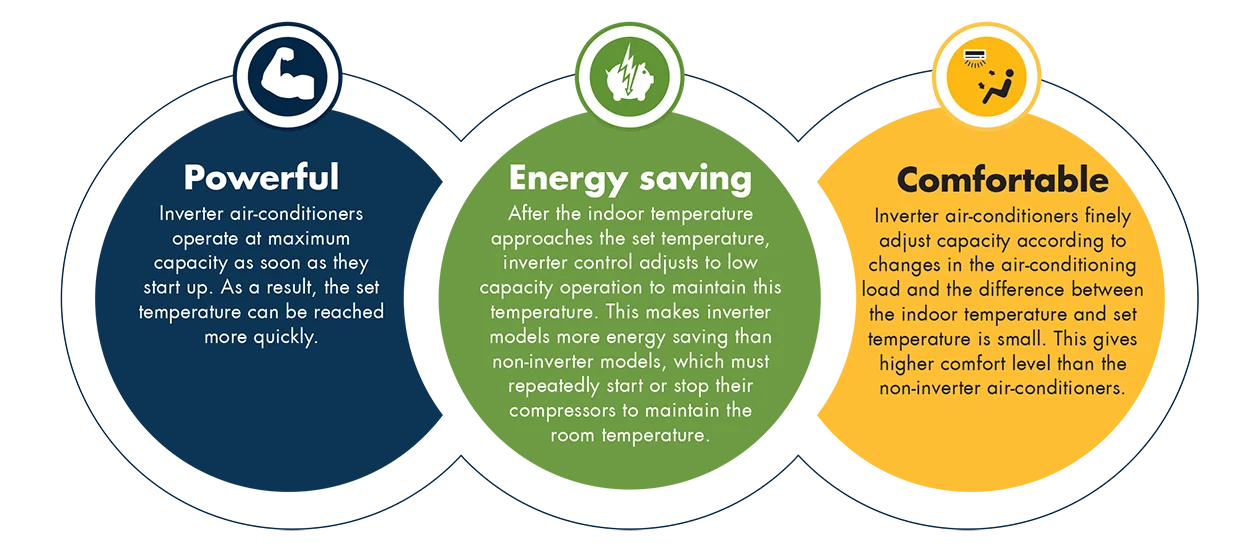
The Inverter AC has a better cooling capacity than a non-inverter AC. It is more energy efficient, as it only uses the power necessary to cool the room. As a result, inverter ACs are a better choice than non-inverter ACs in terms of cost and performance.
Inverter ACs also maintain a constant temperature, which is ideal for patients in hospital rooms or people who are sensitive to temperature fluctuations.
In addition, inverter ACs are less likely to experience the type of wear and tear that can lead to costly repairs. For all these reasons, inverter ACs offer a compelling alternative to traditional air conditioners.
Does Inverter AC need Stabilizer?
Yes, an AC inverter does need a stabilizer to protect it from damage against sudden power fluctuations. You should use one, especially if you live in an area with a lot of power fluctuations or if your AC is particularly sensitive. A stabilizer can help protect your appliance from irreparable damage and extend its lifespan.
While most ACs can handle small power fluctuations without issue. These inverter ACs are designed to run on a wide range of voltages, but extreme fluctuations can still damage the internal components, especially the compressor.
Nobody Can Predict The Power Fluctuations.
A stabilizer helps to ensure that the voltage supplied to your AC is always within the safe range, preventing damage and ensuring that your AC runs smoothly and efficiently.
A stabilizer acts as a buffer, absorbing any sudden spikes or dips in voltage and preventing them from reaching the AC. It can help extend your AC’s life by protecting it from voltage fluctuations.
Since these air conditioners are more expensive than traditional ACs, so it’s important to do everything you can to protect your investment. Using a stabilizer can help prolong your Inverter AC’s life and ensure that it continues to operate at its best.
If you’re still unsure whether you need a stabilizer or not, consult with a qualified technician. They will be able to assess your situation and recommend the best solution for you.
How Does a Voltage Stabilizer Work?
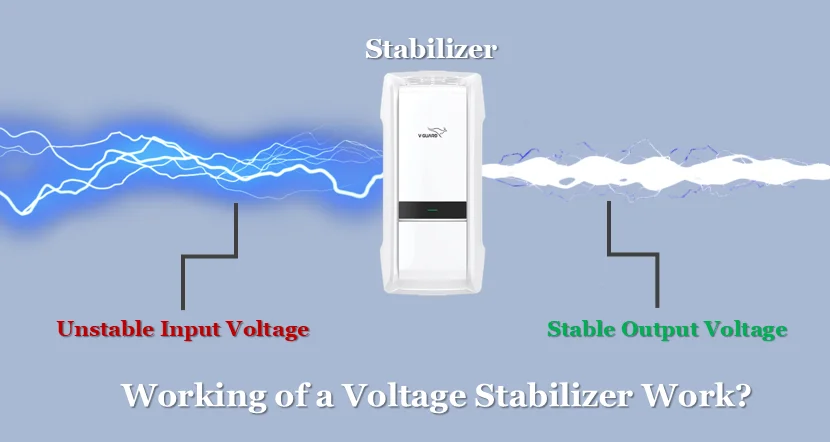
A voltage stabilizer is a device that is used to maintain a constant voltage level, regardless of the fluctuations in the input voltage. It is usually placed between the power supply and the load and can either be unregulated or regulated.
Unregulated voltage stabilizers use a simple transformer to step down or step up the voltage, depending on the needs of the load.
Regulated voltage stabilizers use electronic components to maintain a constant output voltage, regardless of fluctuations in the input voltage.
A voltage stabilizer works by performing boosting or bucking operations.
A voltage stabilizer works by boosting and bucking. When the input voltage drops below the desired level, i.e., below the necessary level, the voltage stabilizer will increase the output voltage (Boost) and prevent the power supply gap so that the electronic device can continue to operate normally.
Similarly, when the input voltage rises above the desired level, the voltage stabilizer will reduce the output voltage (Buck), keeping it within the acceptable range so that the electronic device is not damaged. It prevents the air conditioner or appliance from getting fried by sudden voltage spikes.
For performing these boosting and bucking operations, a voltage stabilizer uses a transformer with switching relays and other electrical circuits.
Voltage stabilizers are used in various applications, mainly in electronic devices such as computers, TVs, and microwaves. It ensures that the sensitive electronic equipment operates properly within its specified range, even when there are fluctuations in the power supply.
Without a voltage stabilizer, unexpected changes in voltage could damage the equipment or cause it to malfunction.
Benefits of a Voltage Stabilizer For AC
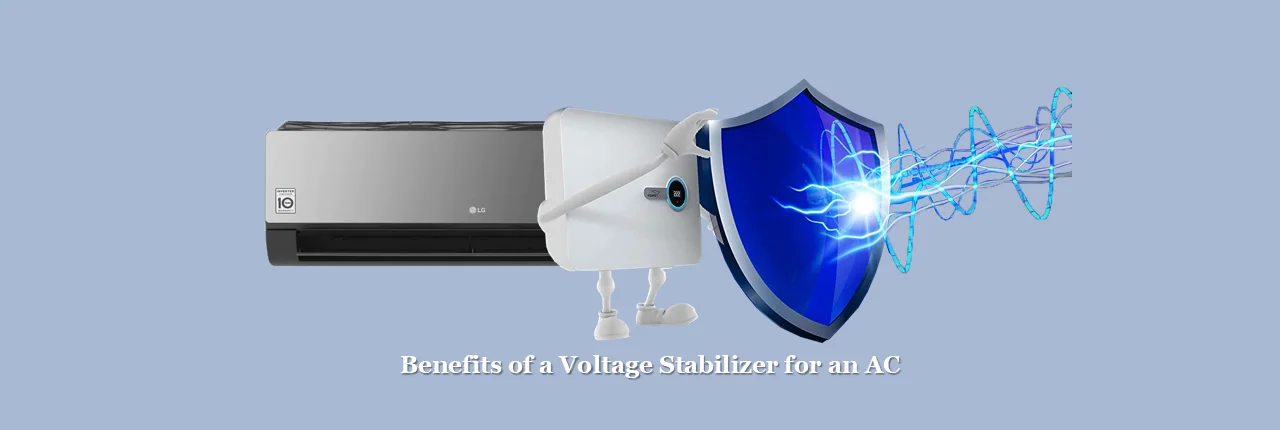
A voltage stabilizer for AC is a device that is used to regulate the voltage supplied to an AC appliance. This helps ensure that the appliance receives the correct voltage and does not fluctuate too much. A voltage Stabilizer is also known as an AC voltage regulator.
The primary function of an air conditioner voltage stabilizer is to change the alternating current into a direct current.
This helps in providing a constant flow of electricity to the air conditioner. As a result, it protects the air conditioner from damage due to voltage fluctuation and keeps it working efficiently. The appliance is less likely to overheat or be damaged by high voltages.
A voltage stabilizer prevents the appliance from getting fried by sudden voltage spikes.
In addition, an air conditioner voltage stabilizer also reduces the noise level emitted by the air conditioner. A voltage stabilizer can also help to extend the lifespan of an AC appliance, as well as improve its efficiency.
It is thus evident that voltage stabilizers are very beneficial for air conditioners and must be used for their proper functioning, and I personally recommend using a voltage stabilizer for AC appliances such as air conditioners, refrigerators, and freezers.
Can We Connect AC Without A Stabilizer?
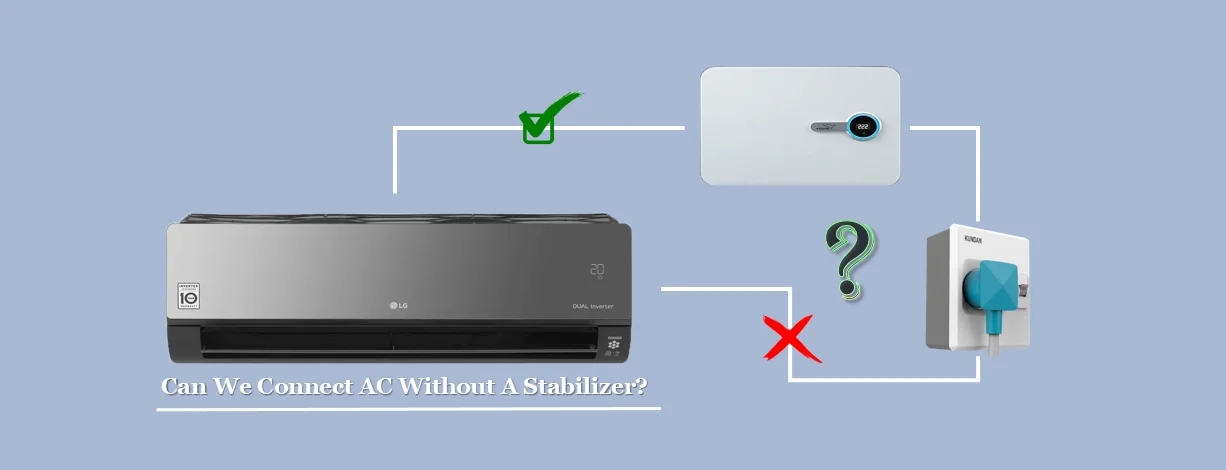
While it’s possible to connect an AC without a stabilizer, it’s not advisable. A stabilizer helps to protect the AC from fluctuations in voltage, which can damage the unit.
In addition, a stabilizer can help prolong the AC’s life by preventing it from working harder than necessary.
As a result, it’s generally best to use a stabilizer when connecting an AC. While it may cost a bit more upfront, it will ultimately save you money in the long run by protecting your AC and ensuring that it lasts for many years.
However, if you have a high-quality AC with an S-UTR compressor unit that is properly installed, you may be able to get by without a stabilizer. These compressors are designed in such a way that keeps the AC’s power supply stable.
Another case can be that your AC has an inbuilt stabilizer, and you may think that the Ac doesn’t need an external stabilizer. But when you read the AC manual, you will find a word of caution that the inbuilt stabilizers cannot guarantee the 100% safety of the air conditioner in the event of a drastic fluctuation in power.
| S.No. | Inverter AC Brand | Voltage Stabilizer Needed or Not | Operating Voltage Range | Reason |
| 1 | Daikin | No | 130V-265V | The built-in stabilizer can cut off the voltage if the power surges beyond its operating range. |
| 2 | Samsung | No | 130V-290V | S-UTR compressor |
| 3 | Panasonic | No | 145V-285V | S-UTR compressor |
| 4 | Carrier | No | 150V-220V | The power supply will be switched off automatically. |
| 5 | LG | Yes | 120V-290V | No auto cut-off |
| 6 | Voltas | Yes | 100V-290V | No auto cut-off |
| 7 | Llyod | Yes | 140V-280V | No auto cut-off |
| 8 | Blue Star | Yes | 160V-270V | No auto cut-off |
| 9 | Hitachi | No | 130V-300V | The power supply will be switched off automatically. |
So, I personally recommend you use a voltage stabilizer with your air conditioner and not take any major risk.
In what cases a voltage stabilizer may not be required for Inverter AC?
Voltage stabilizers are devices that help protect electronic equipment by providing a regulated power supply. Inverter ACs are increasingly common in homes and businesses and are especially vulnerable to voltage fluctuations.
As a result, many assume they need to use a voltage stabilizer with their Inverter AC. However, there are some cases where a voltage stabilizer may not be required.
First, if the Inverter AC is connected to a UPS, the UPS will already provide regulated power.
Second, if the Inverter AC is only used occasionally or for short periods of time and the AC has a built-in stabilizer that can cut off power during heavy fluctuation, it may not be necessary to use a voltage stabilizer.
Thirdly, if your Inverter AC is equipped with an S-UTR compressor with the auto cut-off feature, then also a stabilizer is not required.
Finally, if the Inverter AC is located in an area with a stable power supply, such as a developed country, it is unlikely that voltage fluctuations will be an issue. In this case, you need to make sure that the in-built stabilizer has overload protection that can save the appliance during a sudden power surge from lightning or in case of a short circuit.
In these cases, a voltage stabilizer may not be required for Inverter AC.
How Much kVA Voltage Stabilizers Are Required for Inverter AC?
To function properly, the inverter AC requires a stable power supply. Voltage stabilizers are devices that help to provide this stability by regulating the voltage of the power supply. The amount of kVA voltage stabilizer required for an inverter AC system can vary depending on the size, type, and wattage rating of the Inverter Air Conditioner.
To determine the wattage of your Inverter AC, you can check the sticker attached to the appliance. The wattage of an appliance tells about the total load the stabilizer must carry.
After that, you can calculate the capacity of the stabilizer (in kVA) needed to meet your Inverter AC’s power requirement by adding 20 percent to the total wattage of your appliance.
The size of a stabilizer is expressed in kVA.
For example, a 1000-watt inverter AC would require a 1.2 kVA (1200 VA) voltage stabilizer. In the same way, let’s see the stabilizer needed for different size air conditioners.
For a small 1-ton inverter AC of max 1300 wattage, a 1-2 kVA stabilizer may be sufficient.
For a medium size 1.5-ton inverter AC of Max 1900 wattage, a 2.5-3 kVA stabilizer is capable enough.
| Tonnage | Max Wattage | Max kVA |
| 1 Ton | 1300 Watts or 1.3 kW | 1.6 kVA |
| 1.5 Ton | 1900 Watts or 1.9 kW | 2.4 kVA |
| 2 Ton | 2500 Watts or 2.5 kW | 3 kVA |
For a large 2-ton inverter AC of max 2500 wattage, a higher capacity stabilizer of 3-3.5 kVA is sufficient.
You can also consult with the manufacturer or an experienced electrician. They will be able to consider other factors, such as the rated output of the inverter AC. With their help, you can ensure that your Inverter AC is properly protected from voltage fluctuations.
Choosing a voltage stabilizer that can handle both the maximum and minimum voltages that the inverter AC will encounter is important. This will ensure that the Inverter AC has a stable power supply, regardless of fluctuations in the input voltage.
The appliance’s wattage means the immediate power demand or the electricity required when all the components of an inverter air conditioner are running i.e. when the compressor is at its maximum level.
Does the Inverter AC have an inbuilt stabilizer?
One question often asked about Inverter ACs is whether they have an inbuilt stabilizer.
The answer is yes, most inverter ACs come with an inbuilt stabilizer which helps to protect the compressor from damage due to voltage fluctuations. As a result, installing a separate stabilizer for an inverter AC is not always necessary.
Does Dual Inverter AC need a Stabilizer?
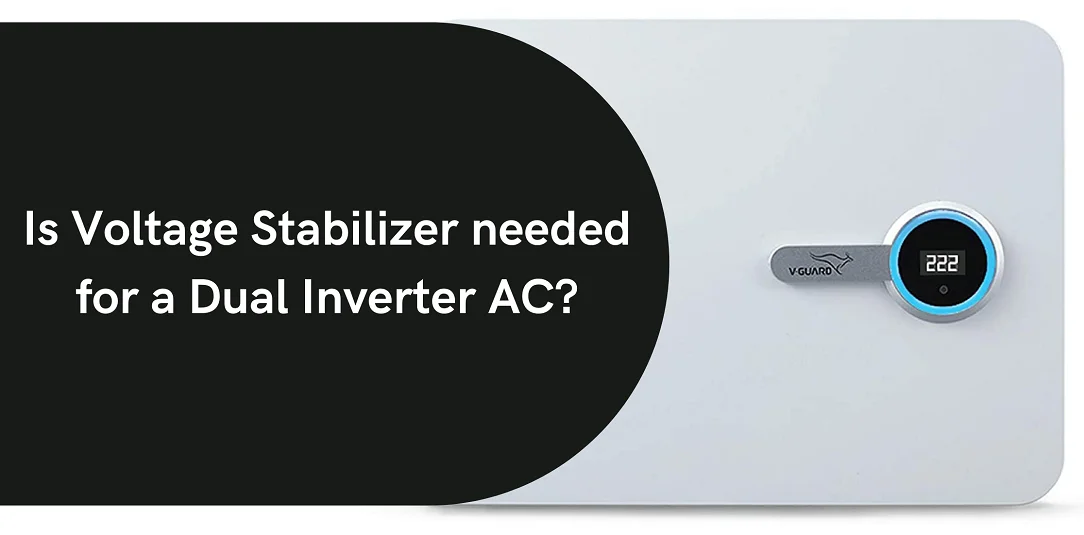
Dual inverter ACs are air conditioners with two rotary compressors and two compression chambers instead of one. It is an advanced form of Inverter AC, and the main advantage of this design is that it can save energy by running at a lower wattage and provide quick cooling with less noise.
Although these appliances are more reliable and have a longer lifespan than single inverter ACs, voltage fluctuations can still affect these ACs. Any fluctuations beyond the range of 145-290V need a good voltage stabilizer.
The External Stabilizer Serves As A Backup To Your Internal Stabilizer.
Most of these dual Inverter AC come with an in-built stabilizer, and one might think that the appliance does not need a stabilizer, but we highly recommend using one if your appliance doesn’t have an automatic power cut function.
The external voltage stabilizer works as a backup to your internal stabilizer and will prevent irreparable damage and power fluctuations in the dual Inverter AC.
Read More: Dual Inverter AC: Everything you need to know
Is it safe to use an AC without a voltage stabilizer?
Many people use voltage stabilizers to protect their home appliances from voltage fluctuations. However, some experts believe that voltage stabilizers are unnecessary for most devices, including air conditioners.
They argue that most modern appliances are designed to withstand minor voltage fluctuations and that the risks of using a voltage stabilizer outweigh the benefits. While it is true that voltage stabilizers can provide some protection for your appliances, they can also cause problems if they are not used correctly.
The External Stabilizer Is An Added Layer Of Safety.
However, air conditioners work best when they are connected to a voltage stabilizer. This is because devices that use alternating current (AC) are designed to operate within a certain range of voltages.
The appliance can be damaged or may not work correctly when the voltage is too high or too low. In some cases, using an appliance without a voltage stabilizer can also pose a safety risk. For example, if the voltage is too high, it can cause an electrical fire.
So, it is not safe to use an AC without a voltage stabilizer. It is best to use an AC unit with a voltage stabilizer. This will help to protect your appliance and keep it working properly.
How to Choose the Right stabilizer for your Inverter AC
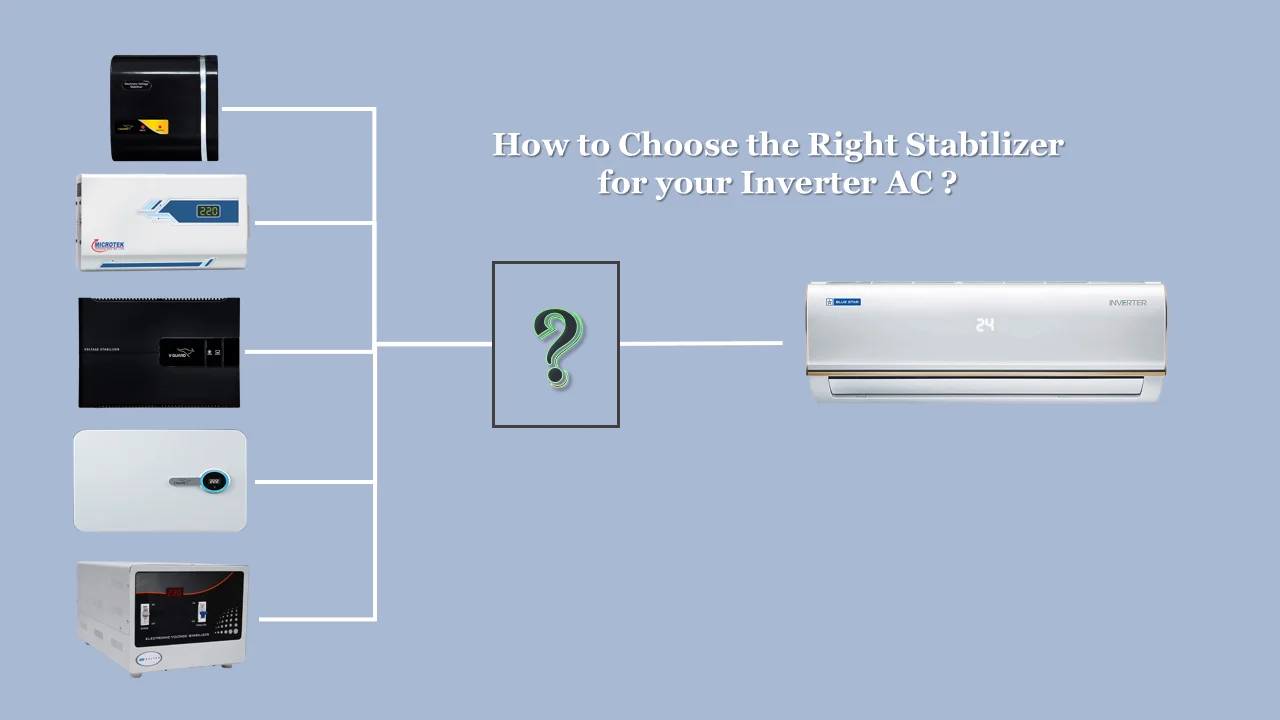
To protect your Inverter AC, you will need to install a stabilizer. But with so many different models on the market, how do you choose the right one?
It would be best if you kept a few things in mind when selecting a stabilizer for your Inverter AC.
First, you need to make sure that the unit is rated for the specific voltage of your AC. To do this, you need to check the voltage rating of your AC. This information can be found in the AC’s manual or on the manufacturer’s website.
Once you know the voltage rating, you can select a stabilizer with a matching or 20% higher voltage rating. I personally recommend you go for a 20% higher voltage rating. Don’t forget, it is important to consider the stabilizer’s capacity, as this will determine how much power and protection it can provide to your Inverter AC.
Second, you will want to choose a stabilizer with a wide range of operating voltage. We recommend going for a voltage stabilizer with a working voltage range between 90V ~ 300V. This will ensure that the unit can still provide adequate protection even in extreme power fluctuations.
Thirdly, you need to choose a voltage stabilizer with automatic safety off feature or a power supply cut-off switch that switches off the power supply to the appliance if the voltage fluctuates beyond the operating range of the AC. This feature is the most important for an inverter AC.
Finally, it is essential to select a stabilizer that is backed by a good warranty. This will give you peace of mind in knowing that if something does go wrong, you will be covered.
By following these simple tips, you can be sure to select the right stabilizer for your Inverter AC. With the proper protection in place, you can enjoy years of worry-free cooling.
Best Stabilizer for Inverter AC
Choosing a stabilizer compatible with your AC and has a slightly higher capacity than your AC’s wattage is crucial. This will ensure that your AC receives the stabilized power it needs to operate efficiently.
In addition, it is vital to check the reviews of any stabilizer before purchasing it to ensure that you get a quality product.
If you want to check some good voltage stabilizers, below are a few recommendations from our side. You can visit and check the latest price.
- No products found.
- No products found.
- No products found.
- No products found.
- No products found.
Hope you get a good stabilizer for your inverter Air Conditioner very soon.
Frequently Asked Questions
Final Verdict
Whether you are using a modern inverter AC with a built-in stabilizer and “stabilizer-free operation” or an older model without the inbuilt stabilizer feature, it is always wise to use a voltage stabilizer with your air conditioner.
Regardless of the type or brand of air conditioner you have, it is always recommended to use a stabilizer for added protection and peace of mind. This is because an AC is a heavy-duty appliance that contains potentially hazardous materials, such as refrigerants.
Additionally, the risk of power fluctuations, surges, and lightning can also cause serious damage to your air conditioner and lead to fires or other safety risks. For these reasons, it is essential to use a high-quality voltage stabilizer when operating your AC.
It will protect your AC from potential damage due to power fluctuations and ensure its safety and longevity. With the right stabilizer in place, you can ensure that your Inverter AC runs efficiently and lasts many years. So if you value your comfort at home, invest in a good quality stabilizer today!
I hope this article was helpful to you in answering your query on whether to use a stabilizer with inverter AC or not and provided ample information on the topic. You can write to us and let us know if we missed out on any points or details.
We would love to hear from you.
Thanks for reading!

